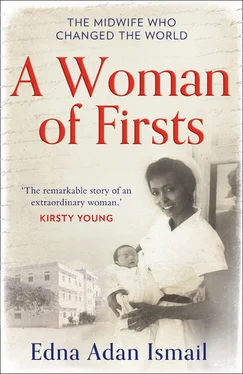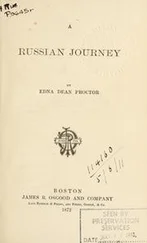There are so many more people to deal with in bad times, and not just those dying of hunger and thirst. Animal carcasses litter the roads and attract flies that carry more disease. Starvation compromises the immune system, which gives people a lower resistance to diseases like TB. Dark hair pales through loss of pigmentation, skin wrinkles and ankles swell. The children especially suffer from protein calorie malnutrition, also known as kwashiorkor , or fluid retention in their bellies as their spleens and livers enlarge. The British-organized military response teams and the Somali Army set up huge camps in the desert to hold 30-40,000 destitute people. Dad and the Army nursing officers would travel back and forth to bring the most desperately ill to the hospital for treatment. Mostly they needed water and food – a little at a time or they’d die of diarrhoea. We fed them a kind of gruel or boiled white rice and watered-down milk. If their veins hadn’t collapsed, we could give them saline through a drip. If they had we were to administer subcutaneous injections daily so that their bodies could absorb it.
Every morning Dad would ask me to help him with something else. ‘Come with me today?’ he’d plead. ‘There are too many patients for me to deal with and I need your help with the dressings.’ Or, ‘Have breakfast early tomorrow, I want you to assist with a procedure, so dress up and meet me on the ward.’ He knew he could trust me that if a surgical instrument needed washing I would do it properly, and that it wouldn’t be stolen. We were so short of supplies that the families of patients would be requested to bring in their own sheets, as well as old ones they had no further use for, which I would cut up for dressings. I’d sit in a side room with piles of striped sheets of every colour, ripping and cutting them into every size Dad might need. Every outpatient would also wash their own bandages and bring them back so that we could boil them all up again and issue them with fresh ones. The brand new custom-made bandages from England were kept back for surgery.
My father’s single-storey hospital had a male ward, a female ward, a medical ward, a surgical ward, outpatients and a maternity ward. There was room for forty patients. Babies slept with their mothers in their beds as there were no cots and an incubator was unheard of. The staff was largely illiterate and not very conscientious, but the whitewashed building was clean – if a little tired – as it was still inspected by the British once a year.
Dad was run ragged delivering babies, performing minor operations and rehydrating patients. Often he was hampered by the unwritten custom in our country that any surgery or lifesaving procedure on a woman has first to be agreed to by their closest male relative, or the one who is financially responsible for her. Seeking that consent from nomadic families scattered in remote places was often difficult and sometimes impossible to get. He was also much hindered by a lack of supplies, as whatever the British provided was never enough and in times of crisis the demand trebled. He was constantly sending telegrams pleading for extra saline drips or needles, more paraffin, wicks and lamps. In desperation, he would sometimes put on his best clothes and go in person to see the District Commissioner to ask for what he needed.
I was only permitted to help my father on the outpatient’s ward and never near the delivery room. God forbid a Somali girl is let in on the secrets of the female body. If Dad was away visiting the nomads, I was then allowed onto the other wards to supervise those he was most concerned about, help the auxiliaries, and follow the numerous instructions on his list.
My mother objected vociferously. ‘Why do you have to go to the hospital again, Edna? What do you know about patients? You’ll kill people!’
‘I’m not going to kill anybody. I’m just going to make sure the staff are doing what they should be doing.’
‘How do you know what they should be doing?’
‘I follow what Dad tells me on the piece of paper he left me.’
It never occurred to her to help him, too, or to get some other job. She was a bright, educated woman who’d grown up in a different country, spoke several languages, and could easily have worked as an interpreter or translator. Yet she chose to stay at home to be influenced by her Somali girlfriends about how a wife should be.
***
When my schooling in Djibouti City ended after six years, I returned home proudly to Somaliland with my Certificat d’Études Primaires . I had done very well, but at fourteen years old I couldn’t help but wonder what was in store for me next. Formal education in Djibouti didn’t extend beyond primary school, so there was no reason for me to stay and some pressing reasons for me to go home.
Most Somali girls are married between the ages of fifteen and eighteen and if they are still single much beyond that then they are considered not only unmarriageable, but also unlucky. Marriages are often pre-arranged between families, rather than purely for love. Tribal influences are still important and girls are either wed into their own tribe or into a compatible one to establish new alliances. As a naïve teenager, I had no thoughts about marriage and no idea about sex. Anything relating to my private parts was abhorrent to me after my cutting and I couldn’t countenance the idea of intimacy of any kind. I enjoyed the weddings of my cousins and other family members with their various ceremonies, dances and feasts, but was puzzled by the notion that Somali men can take up to four wives when I had grown up in an unusually monogamous household.
Instead of boys, my focus was on perfecting my languages. Although I was fluent in French by then, my English was poor – especially my pronunciation – so Dad hired a teacher to show me the correct way to say things by having me study diction and read out loud. Armed with this skill, and with my father’s encouragement, I happily jumped at the offer to work for six months as an interpreter for a British doctor named Dr Ashe in the Ruth Fisher Clinic in Hargeisa. This women-only facility had been opened by the Governor’s wife in 1945 with an all-female staff designed to encourage Somali women – banned from seeing a male doctor – to attend hospital whenever they were ill or pregnant.
Dr Ashe was an obstetrician married to a fellow doctor and she was very kind to me. I was conscripted into interpreting for her during the morning outpatients’ clinic for sick women and children. I didn’t know the medical terms for the different medical problems and neither did the patients, but I’d describe their symptoms and the doctor would say, ‘Ah, yes, that sounds like cellulitis to me’, or, ‘I think you may have eczema.’ In every case, if she required surgery, each female patient needed to obtain the permission of the male head of her household, which often delayed and complicated treatments, so I had to help with that too. Very often Dr Ashe would be summoned for a difficult delivery so I would also be called. I was usually kept well back but I still witnessed my first births that way, and there was no time to feel squeamish about it. What struck me most of all was how respectful and professional Dr Ashe was and how she worked very hard to keep the mother and baby alive. It was working alongside her that I first learned that the two main killers of pregnant women in my country are poverty and ignorance. A poor nomadic woman who may have started having babies in the bush as a young teenager and could be on her twentieth child by her late thirties has never had any proper medical supervision or social justice. If she starts to bleed out during yet another pregnancy then the chances are that she will die unless her relatives can get her to a hospital.
Читать дальше












